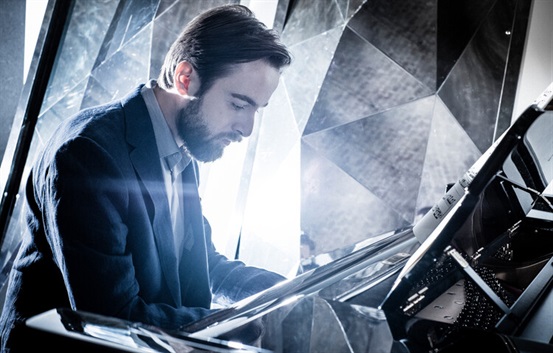
Daniil Trifonov © Dario Acosta
Daniil Trifonov, Klavier
»Bach: Die Kunst der Fuge«
Friday
1
April
2022
19:30
Großer Saal
Performers
Daniil Trifonov, Klavier
Programme
Johann Sebastian Bach
Contrapunctus I (Die Kunst der Fuge BWV 1080) (1742 vor/1745 ca.)
Contrapunctus II (Die Kunst der Fuge BWV 1080) (1742 vor/1745 ca.)
Contrapunctus III (Die Kunst der Fuge BWV 1080) (1742 vor/1745 ca.)
Contrapunctus IV (Die Kunst der Fuge BWV 1080) (1742 vor/1745 ca.)
Contrapunctus V (Die Kunst der Fuge BWV 1080) (1742 vor/1745 ca.)
Contrapunctus VI (Die Kunst der Fuge BWV 1080) (1742 vor/1745 ca.)
Contrapunctus VII (Die Kunst der Fuge BWV 1080) (1742 vor/1745 ca.)
Contrapunctus VIII (Die Kunst der Fuge BWV 1080) (1742 vor/1745 ca.)
Contrapunctus IX (Die Kunst der Fuge BWV 1080) (1742 vor/1745 ca.)
Contrapunctus X (Die Kunst der Fuge BWV 1080) (1742 vor/1745 ca.)
Contrapunctus XI (Die Kunst der Fuge BWV 1080) (1742 vor/1745 ca.)
***
Contrapunctus XII rectus und inversus (Die Kunst der Fuge BWV 1080) (1742 vor/1745 ca.)
Contrapunctus XIII rectus und inversus (Die Kunst der Fuge BWV 1080) (1742 vor/1745 ca.)
Contrapunctus XIV (Die Kunst der Fuge BWV 1080) (1742 vor/1745 ca.)
Jesus bleibet meine Freude (Herz und Mund und Tat und Leben BWV 147) (Bearbeitung: Myra Hess) (1723)
-----------------------------------------
Zugabe:
Johann Sebastian Bach
Bist du bei mir BWV 508 (1725))
Note
Medienpartner Ö1 Club
Subscription series
Klavier im Großen Saal
Konzert.Kunst
Links
https://daniiltrifonov.com
Presented by
Wiener Konzerthausgesellschaft
The art of the fugue
Daniil Trifonov performs without show and any posturing – and yet, since his 3rd place at the Warsaw Chopin Competition in 2010, he is rightly counted among the best of the younger generation of pianists. Now the Russian New Yorker-by-choice has set his sights on Johann Sebastian Bach and his most radical, most enigmatic work, which is considered to be mathematically unwieldy, »The Art of the Fugue«. Even the sequence of the pieces and the instrumentation are left to the performers – not to mention the handling of the unfinished ending.
Trifonov pays tribute to the romantic in the contrapuntal Bach. Which has a certain logic, already the first great Bach renaissance took place in the Romantic period. And he does this, as the Süddeutsche Zeitung attests, in »his unmistakable style, a playing of unheard-of delicacy and delicacy that seems to hover over the keys in often frantic tempi and hardly perceive their material resistance.«
Publications
Program sheet